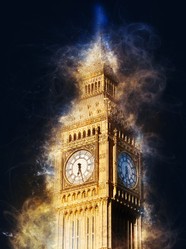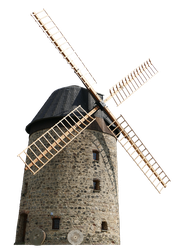At the head of the United Kingdom is a monarch, who has some residual powers, but whose main function is to advise and act as a symbol of the nation. For instance she meets every newly appointed foreign ambassador, appoints judges,senior military officers and the prime minister, who must meet with her once a week to account for the government's performance. She is head of the armed services, who swear their oaths to her. She must sign all acts of parliament into law. Her residual powers are the right to dissolve parliament or to dismiss the prime minister, but she has never exercised the latter and only dissolved parliament on request from the prime minister. She can negotiate treaties without government consent or even make war, but no monarch since 1688 has ever done either. The monarch is supreme governor of the Church of England. She is advised by a group known as the Privy Council, who are all senior ministers appointed to the privy council for life, but all that they do is advise.
Below the monarch is parliament, which is democratically elected and has the power to do two things that the monarch cannot do: make laws and raise taxes. The elected house of parliament is the House of Commons, which has the final say in what laws are enacted. The upper house, the Lords, is a revising chamber, which can send matters back to the Commons up to two times,but if the commons insist on rejecting Lords' amendments the Commons gets its way. Lords are appointed by the monarch on advice from the Prime Minister, but while there are still hereditary lords they have no voting rights in that chamber.
The Prime Minister is not directly elected but is normally the leader of the largest party in parliament. The present incumbent got the job after the previous P.M resigned as party leader after losing the Brexit referendum. Five candidates stood, but four dropped out, leaving her to be elected leader unopposed. The monarch then had to ask her to be P.M. A thoroughly unsatisfactory way to appoint a P.M. The P.M heads the government and advises the monarch on appointments in the competence of the monarch, such as judges and Church of England bishops.
Below the level of parliament there are devolved administrations in Scotland, Wales and Northern Ireland. You might ask why not one for England, but when a form of devolution was proposed for England the Scottish Nationalist Party objected, apparently happy that English enjoy fewer rights than other citizens of the U.K. That is nothing other than discrimination.
Below this level there are local councils. Some are county councils, others are metropolitan borough councils. There are town and parish councils below them. For example,my own town of Trafford has a metropolitan borough council, to which are responsible one town council in an outlying town and two parish councils in villages to small to be classed as towns.










 TheThousand Year Gardenon 11/26/2025
TheThousand Year Gardenon 11/26/2025
 Women of the Gospelson 10/11/2025
Women of the Gospelson 10/11/2025
 Religious Gardenson 08/25/2025
Religious Gardenson 08/25/2025
 Doctor of the Church: John Henry Newmanon 08/03/2025
Doctor of the Church: John Henry Newmanon 08/03/2025




Comments
Stretford.ninsup port a minority party, the Liberal Democrats. We are small, but we attract thoughtful people.
Thank you for your comment below in answer to my previous observation and question.
Well, voters not voting for you disappoints me.
Which of the 652 constituencies made the mistake of not electing you?
Most government ministers are chosen from members of parliament. The country is divided into 652 constituencies, each of which elects a member of parliament the one who commands the largest support in parliament is asked by the monarch to become prime minister and form a government. I stood once for election, but was defeated.
Thank you for your comment below in answer to my previous observation and question.
Parliamentary dissolution brings about all-new House of Commons members, correct? How is it decided who will run for all those positions?
Andissolutionnis ended by the election of a new parliament, which must take place withinmmfour weeks.
Thank you for your comment below in answer to my previous observation and question.
What has to happen for a parliamentary dissolution to end?
The dissolutionnaffects mainly the House of Commons, but during a dissolution the Lords does not sit.
Thank you!
The first paragraph to the first subheading, The main institutions, alerts us to monarchical residual power to dissolve parliament.
Does dissolving parliament affect both the House of Commons and the House of Lords?
Correct.
Thank you for your comment below in answer to my previous observation and question.
Queen Elizabeth II perhaps faced a time just before dying in which she perhaps had duties yet to discharge.
The task for discharging any unfinished duties therefore would have been then-Prince Charles (now King Charles III), correct?